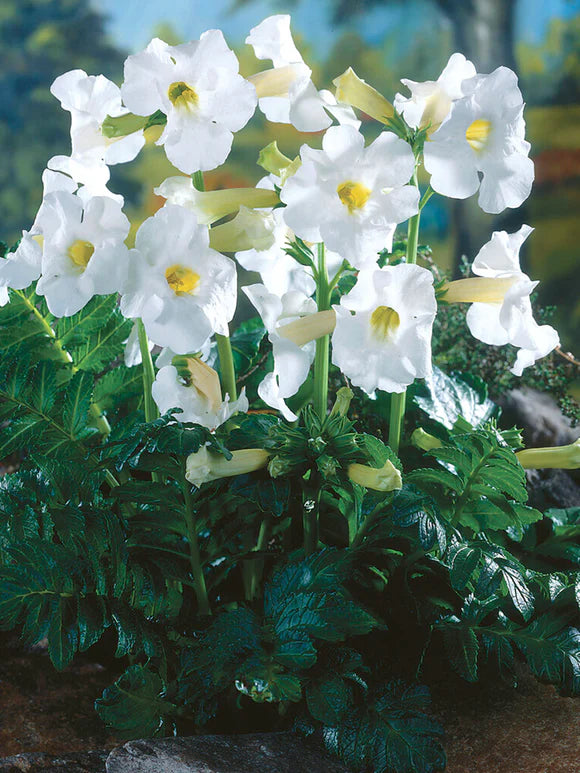Hardy Gloxinia (Incarvillea delavayi) is a stunning perennial known for its vibrant trumpet-shaped flowers and fern-like foliage. Perfect for borders, rockeries, and containers, this easy-to-grow plant adds beautiful colour to gardens, blooming from late spring to summer.
Ideal Growing Conditions
- Location: Plant in full sun or partial shade. While these plants thrive in direct sunlight, they can tolerate some light shade, especially during the hottest part of the day. Ensure the site has well-draining soil.
- Soil: Prefers rich, fertile soil that drains well. They do best in loamy or slightly sandy soil. Improve drainage by adding well-rotted compost if necessary.
- Watering: Keep the soil consistently moist, especially in dry spells, but avoid waterlogging. Apply a layer of mulch to help retain moisture and keep the soil cool.
Planting Instructions
- Spacing: Space plants 30-45 cm apart to allow for healthy growth and air circulation.
- Planting Depth: Dig a hole large enough to fit the rootball without bending the roots. Plant with the top of the rootball level with the surrounding soil.
- Soil Preparation: Mix in compost or a balanced fertiliser to enrich the soil before planting.
Seasonal Care
- Spring Care: In early spring, apply a top dressing of compost or slow-release fertiliser to support new growth.
- Deadheading: Regularly remove spent flowers to encourage further blooms and keep the plant tidy.
- Winter Care: Apply mulch around the base in colder months to protect the roots from frost. After flowering, cut back the foliage in autumn to tidy up the plant.
Companion Planting
Hardy Gloxinia pairs beautifully with echinacea, rudbeckia, or alchemilla mollis. It also complements grasses, lavender, and salvia for a lovely mix of colour and texture.
Hardy Gloxinia is a low-maintenance, hardy perennial that offers vibrant blooms and attractive foliage. Whether used in borders, containers, or rockeries, it’s sure to bring beauty and charm to your garden. Follow these care guidelines for healthy, long-lasting plants.

